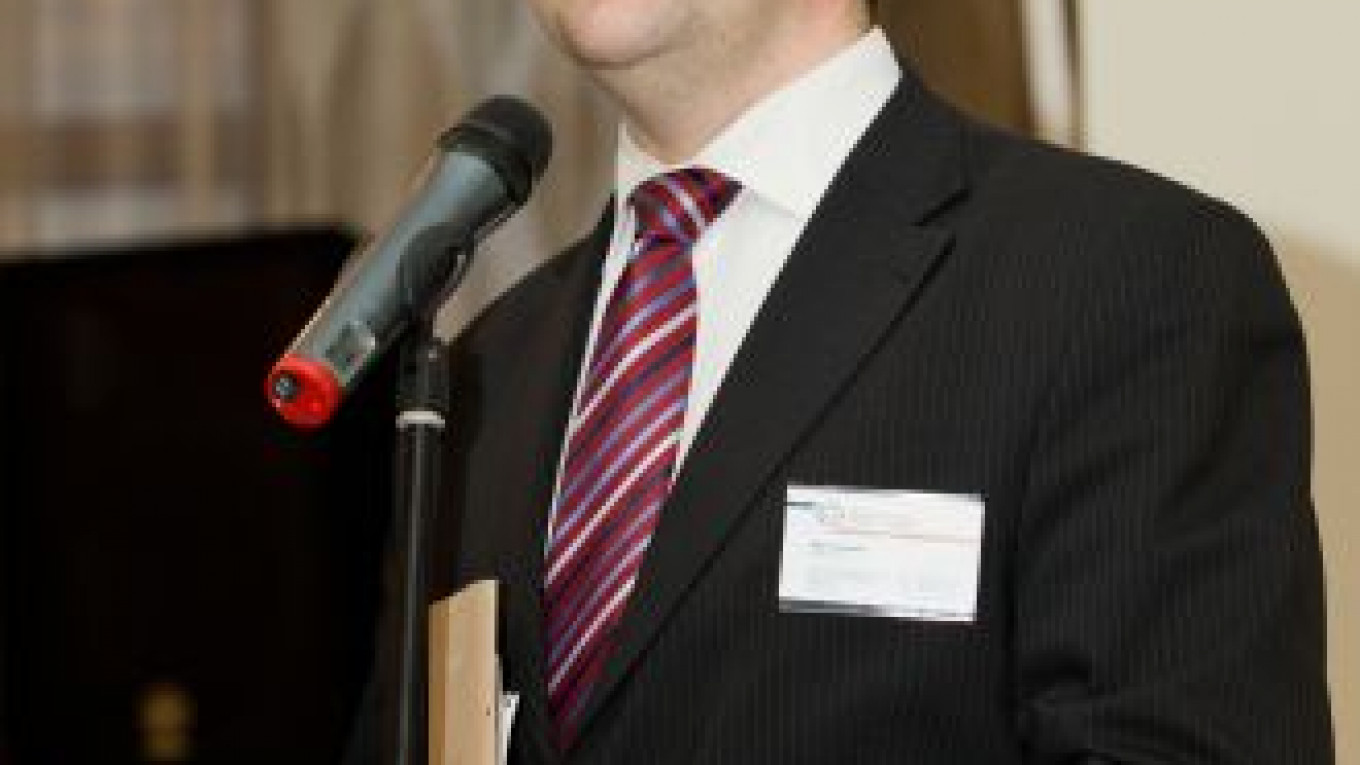The new director of the Russian-British Chamber of Commerce plans to leverage his Scottish roots to outpace his rivals and bring British businesses to the Russian regions.
Edinburgh-born Alan Thompson was appointed Russia head of the RBCC earlier this month, following a stint selling chemicals to the service industry. He has lived in Moscow since 1999.
"Russians feel closer to Scots than they do to Brits," he told The Moscow Times, and promised that he would "flog" his Scottishness to promote the U.K.-Russian business relationship.
"If you can refer to cultural heritage then it helps, particularly when the political side breaks down," he said in an interview in the RBCC's Moscow offices.
Diplomatic ties between Britain and Russia have been strained for years, but they reached a nadir after the 2006 polonium poisoning in London of former KGB officer Alexander Litvinenko and the Kremlin's refusal to extradite the main suspect in the case.
While Thompson said political tension between Britain and Russia could have had some negative consequences for the work of RBCC, he highlighted the opportunities available for British businesses from "blinding" economic growth and the political "common sense" emerging in society.
"The U.K. can't exclude Russia because they are looking at Russia as one of the key growth markets for U.K. businesses," he said. He also stressed Russia's large economic presence in Britain.
Thompson is looking to concentrate on expanding the organization's reach in the regions, particularly west of the Urals, and build a network of permanent representatives outside Moscow. The RBCC already has a branch office in St. Petersburg.
However, unlike some of the other large chambers of commerce, including the United States' AmCham, the RBCC will focus on attracting smaller- and medium-sized businesses.
"The perception is that the British are more democratic and, particularly the Scots, more underdog — so it's easier to get smaller companies involved," he said.
Thompson also believes that growth in Russia is concentrated in the consumer market and its dynamism is all the more impressive because it occurs in the absence of strong government support — unlike the energy sector.
"You can't ignore the consumer growth that's been going on," he said. "It is so much more sustainable than the growth that is happening in China because it is not planned."
A former coordinator of The St. Andrew's Society, the organization for Russia's Scottish diaspora, Thompson picked out the British-based Pig Improvement Company, which markets the genetic strengthening of pig breeds, as one example of a British-Russian success story.
The firm originated in Oxfordshire in the 1960s and started out in Russia by shipping pigs from Poland to Siberia.
"They're a fine example of commitment to the market, determination, integration, and they're doing quite well," Thompson said. "The trick is getting your feet on the ground in the regions so you can find your niche fast and get up and moving."
He criticized companies that entered regional markets accompanied by fanfare and high-level political support but without concrete achievements or knowledge of local business practices. Such an approach fosters instability, he said. "If you're not integrated it's easier to rip you out."
In contrast to the largest bilateral economic organizations, the Association of European Businesses and AmCham, the RBCC, which traces its origins back to 1916 and currently has 400 British and Russian members, does not seek to engage in long-term lobbying campaigns.
"We're very much more a marketing agency," Thompson said.
A Message from The Moscow Times:
Dear readers,
We are facing unprecedented challenges. Russia's Prosecutor General's Office has designated The Moscow Times as an "undesirable" organization, criminalizing our work and putting our staff at risk of prosecution. This follows our earlier unjust labeling as a "foreign agent."
These actions are direct attempts to silence independent journalism in Russia. The authorities claim our work "discredits the decisions of the Russian leadership." We see things differently: we strive to provide accurate, unbiased reporting on Russia.
We, the journalists of The Moscow Times, refuse to be silenced. But to continue our work, we need your help.
Your support, no matter how small, makes a world of difference. If you can, please support us monthly starting from just $2. It's quick to set up, and every contribution makes a significant impact.
By supporting The Moscow Times, you're defending open, independent journalism in the face of repression. Thank you for standing with us.
Remind me later.







